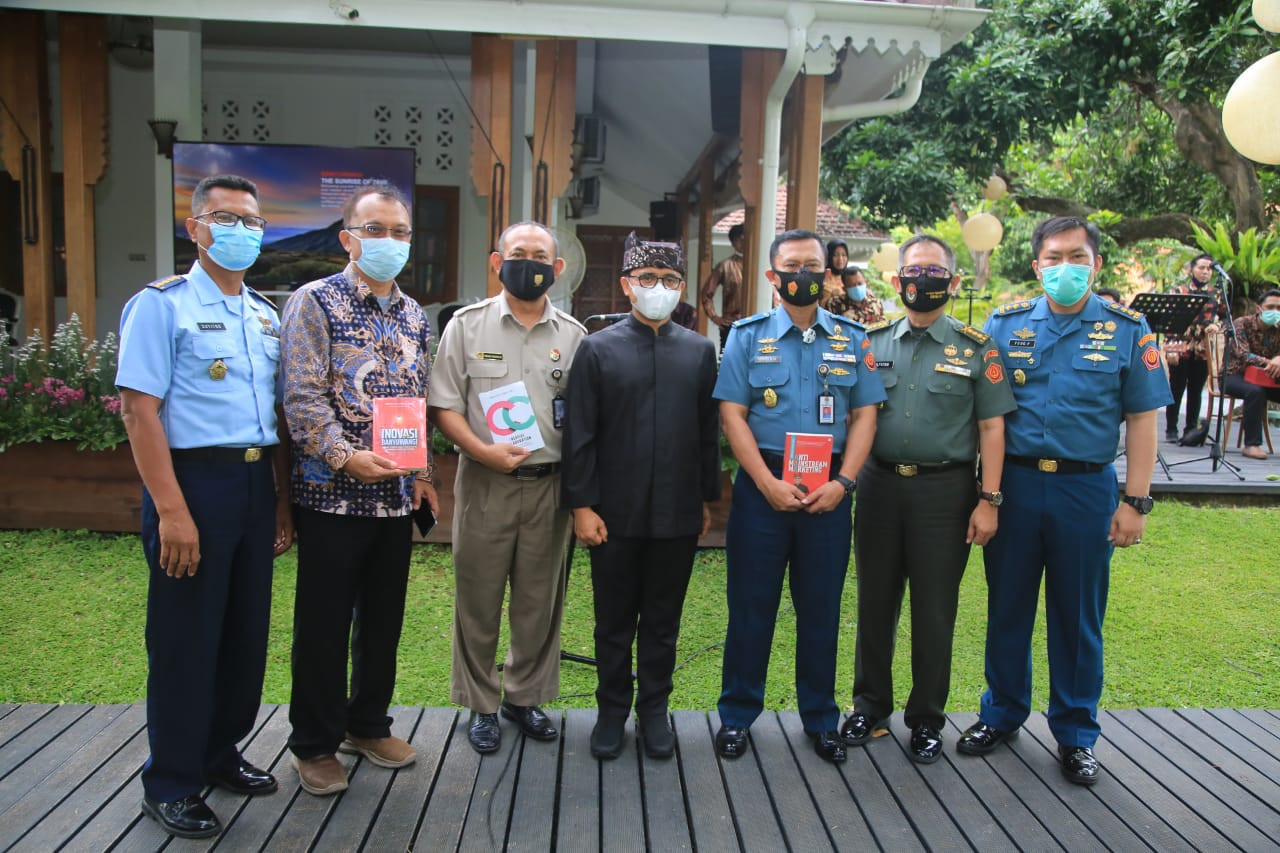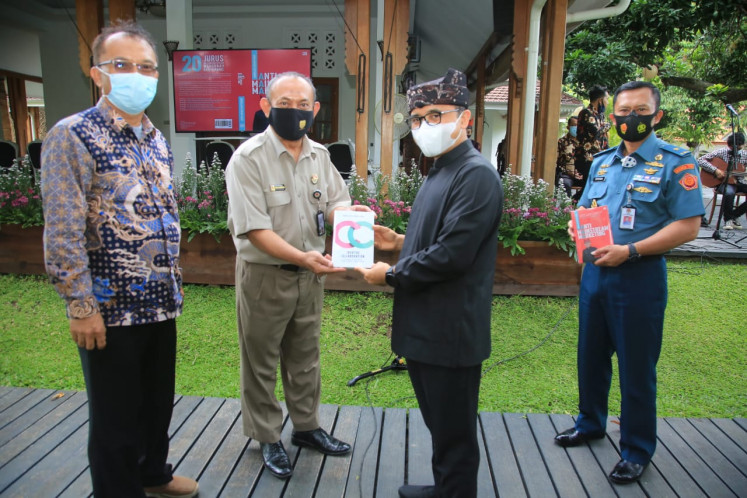Popular Reads
Top Results
Can't find what you're looking for?
View all search resultsPopular Reads
Top Results
Can't find what you're looking for?
View all search resultsBanyuwangi: Wantannas team conducts study on poverty data management
Change text size
Gift Premium Articles
to Anyone
T
he National Resilience Council (Wantannas) Regional Study Team recently made a working visit to Banyuwangi, East Java, to conduct a study on the poverty data management system carried out by the local administration.
The team was in the regency for three days, from Nov. 24 to 26.
Led by Ir. Hadian Ananta Wardhana and accompanied by Indonesian Military (TNI) Vice Admiral Supendi and urban planning expert Dr. Yayat Supriatna, among others, the entourage was received by Banyuwangi Regent Abdullah Azwar Anas at City Hall.
Team leader Hadian said his team had monitored Banyuwangi’s achievements, one related to updating the integrated social welfare data (DTKS), which he considered had been done well.
"Banyuwangi continues to synchronize the data by utilizing the well-built information technology. Banyuwangi was also able to solve all social aid [bansos] data collection problems amid the COVID-19 pandemic,” he said.
Banyuwangi, he added, was also able to validate data on social aid recipients quickly, transparently and integrated through its IT-based system, so all requests for aid could be accommodated quickly.
He added that poverty data had become a serious national issue, with many types of aid reportedly not reaching appropriate beneficiaries due to poor data management.
"In fact, data collection being filed by name and address, like in the case of Banyuwangi, should be able to avoid any mismatches. Therefore, what Banyuwangi is doing has become our concern. Its success should be replicated at the national level so that data problems on social aid recipients can be resolved completely,” he said.
. (Courtesy of Pemkab Banyuwangi/.)Banyuwangi has created a breakthrough in various poverty programs in cooperation with various parties, and it has proven successful in reducing the poverty rate, from 20.09 percent in 2010 to 7.52 percent this year.
"Replicating is indeed not an easy matter. We will conduct an in-depth study related to the poverty data management system for the merit of social aid distribution. This is a lesson for us to make only the best policies for the government,” Hadian said.
Meanwhile, Anas expressed his appreciation for the Wantannas team’s visit. He said that in dealing with poverty, data was the main weapon to ensure programs were right on target because his administration could intervene anytime in the case of irregularities based on accurately filed data.
"We have a poverty emergency room system, by which all poor people are registered by name and address. We examine their economic problems and see whether they have been addressed. From there, we can intervene in a measured manner,” Anas said.
"We work together with many parties. What the administration cannot do is — for instance because it is related to regulations — intervene on our partners with their Baznas or CSR [corporate social responsibility] programs,” he said.
During the pandemic, data is very crucial in distributing social aid.
The regent explained that data validation of the social aid beneficiaries was integrated with the Smart Kampung program, in which the list of beneficiaries is entered into the regional government’s system based on name, address and Identification Card number (NIK).
Such a data collection system can avoid overlapping data entry.
"This way, we do not have someone receiving double packages of social aid in Banyuwangi. When one NIK number has been entered, the system will automatically deny the same entry even for different aid package. From here, we can make sure there is no overlapping data,” Anas said.
To ensure transparency, the administration disseminates the data in public places, such as subdistrict offices, village offices and places of worship.
"In case the eligible beneficiaries are not on the list or they have not received the aid, we have the Online Reporting application. They are welcome to enter the data [into the app]. The system will read it immediately; if it turns out that they have received assistance, they will automatically be rejected. So, this system can minimize inaccuracy in distribution,” Anas said.
This technology-based social aid distribution program has earned Banyuwangi the 2020 Indonesia Smart Nation Award in the smart community category.











